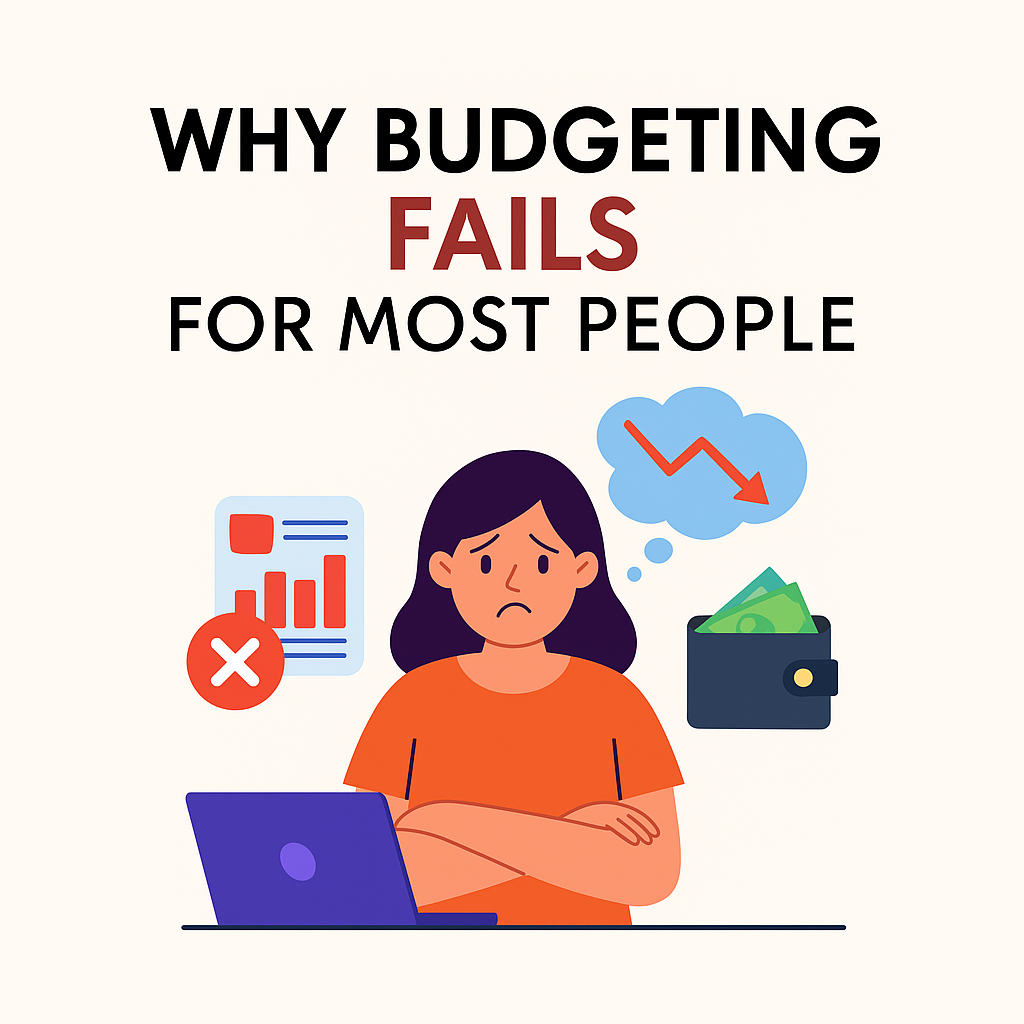🔎 Why Most Budgets Fail by Week 3 - And How to Make One That Doesn’t
You set up the spreadsheet. You even color-coded it. For the first few days, you feel like you’re finally in control.
But then it happens.
An unexpected expense hits. You grab takeout after a long day. You forget to track a few things. Two weeks later, you're back to swiping and hoping your balance holds.
Sound familiar? You’re not alone and you’re not bad with money!
Most budgets don’t fail because people are undisciplined. They fail because the system they followed wasn’t built for real life.
Here’s what actually causes most budgeting plans to fall apart and how to build one that actually sticks.
🚫 Silent Budget Killer #1: Budget Categories That Don’t Work (And What to Use Instead)
Most people start with someone else’s template: a 50/30/20 rule, a Reddit thread, or a blog post that promises “the perfect budget.” At The Sheet Code, we believe in flexibility. That is why all our tools allow for you to set your own ratios. But no budget works if the categories don’t reflect how you actually live.
Maybe your “needs” category doesn’t account for daycare. Maybe your “fun” budget assumes you go out twice a month but you’re social every weekend.
What to do instead: Start with your real numbers, not your ideal ones.
👉 Use our free Build My Budget Tool and allocate based on actual ratios you set, not someone else’s.
🔍 Silent Budget Killer #2: Why You Need a Weekly Budget Check-In
Even a great budget won’t survive if it’s never revisited. Most failed budgets die from neglect, not miscalculation.
The common cycle:
- You create a plan
- You forget to check in
- You drift off track
- You abandon the whole thing
What to do instead:
Add a simple weekly check-in. Look at:
- Where you overspent
- What felt restrictive
- What you forgot to include
The goal isn’t perfection, it’s noticing and adjusting.
👉 Want help turning budgeting into a routine? Annual Habit Tracker tool is a great way to help establish new habits that stick.
💥 Silent Budget Killer #3: Relying on Willpower, Not a System
Discipline is a terrible system. It’s finite. It fades. It burns out.
If your budget relies on “being good,” it’s only a matter of time before you slip and that slip can spiral into quitting altogether.
What to do instead: Build a design that works without willpower. Automate savings. Add in “fun money” guilt-free. Use ratios and timelines to make decisions feel easier, not harder.
✅ The Fix: Make Your Budget Fit You - How to Build a Realistic Budget That Works
The truth is, most budgeting tools aren’t built for real people. That’s why we made ours different.
The free Budget Tool lets you:
- Set your actual income
- Choose your own ratio (or use 50/30/20)
- Allocate realistic housing and emergency fund goals
- Forecast savings without spreadsheets
You don’t need to track harder. You need a better starting point.
👉 And once you're done building your budget - check out our other more comprehensive tools like our Financial Freedom bundle.
It includes our best seller Ultimate Personal Finance Tracker, Annual Habit Tracker and Task Tracker. All in one neat little package.

